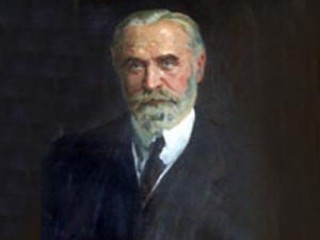
F. H. Bradley biography
Date of birth : 1846-01-30
Date of death : 1924-09-18
Birthplace : Clapham, England
Nationality : English
Category : Science and Technology
Last modified : 2011-05-10
Credited as : Philosopher, principles of absolute idealism,
The English philosopher Francis Herbert Bradley based his thought on the principles of absolute idealism. He rigorously criticized all philosophies based on the "school of experience."
Born in Clapham on Jan. 30, 1846, F. H. Bradley was educated at University College, Oxford. In 1870 he became a nonteaching fellow at Merton College, Oxford, a post he would be permitted to hold until marriage. Never marrying, he remained a fellow at Merton until his death. Although a sick and often suffering recluse, Bradley spent several winters with a mysterious American woman, Mrs. Radcliffe, for whom he wrote outlines of his metaphysics, which she later destroyed. In character, Bradley may be classified as an English eccentric. While he was a conscientious member of Merton, witty though reserved in his speech and well versed in French literature, he was curiously impressed with his marksmanship and occasionally shot cats in the evening.
Bradley's first published work was a pamphlet, The Presupposition of Critical History (1876). In his first major work, Ethical Studies (1876), Bradley sought to refute John Stuart Mill's philosophy of individualism. The chapter "My Station and Its Duties" was influenced by G. W. F. Hegel's concept of the ethical community and placed the individual within, and dependent upon, the community. Continuing his critique of individualism and atomism in Principles of Logic (1883), Bradley attacked the method of Mill's inductive logic by holding that judgment and inference cannot begin with isolated, particular facts. For Bradley, thought must begin and end with universal statements. Finally, in his metaphysics, Appearance and Reality (1893), Bradley argued that the world of appearances is self-contradictory. Absolute reality, however, is a "seamless whole, complete and harmonious." It transcends discursive thought, but it can be compared with the unity and wholeness felt in immediate experience. Bradley once defined metaphysics as the "finding of bad reasons for what we believe on instinct."
Bradley's ideas were widely debated by British and American philosophers in the first decades of this century, and his philosophic system is still worthy of study. He was the older brother of A.E. Bradley, the distinguished literary critic. Bradley died of blood poisoning on Sept. 18, 1924.
















